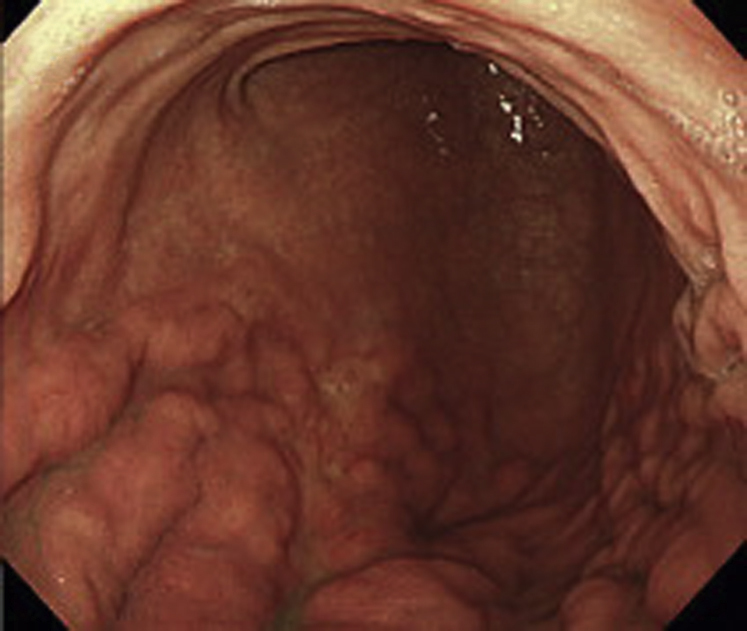gastric cancer, a malignancy of the stomach. Approximately 97% of stomach tumors are adenocarcinomas, which may be ulcerating, polypoid, diffuse, and fibrous, or superficial spreading lesions. Lymphomas and leiomyosarcomas account for less than 3%. Symptoms of gastric cancer are vague epigastric discomfort, dysphagia, anorexia, weight loss, back pain, and unexplained iron deficiency anemia. However, many cases are asymptomatic in the early stages, and metastases may cause the first symptoms. Diagnostic measures include a test for occult blood in the stool, an upper GI series, a computed tomographic examination of the gastric mucosa with a flexible endoscope, and biopsy and cytological studies of exfoliated tumor cells. Surgery is usually recommended for suitable lesions. Radiotherapy and chemotherapy are usually not effective in adenocarcinoma but are often used in gastric lymphoma. Chemotherapy is used in treating advanced metastatic gastric adenocarcinoma. Gastric cancer is declining in incidence in North America and Western Europe but is common in Japan. Dietary factors, such as nitrates, smoked and salted fish and meats, and moldy foods containing aflatoxin, and infection with Helicobacter pylori are thought to cause gastric cancer, but the cause remains unknown. Genetic factors also play a role. The incidence is higher in men than in women and peaks in individuals 50 to 59 years of age. The risk increases in workers exposed to asbestos and in patients with pernicious anemia.

